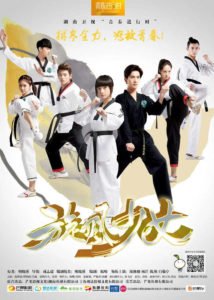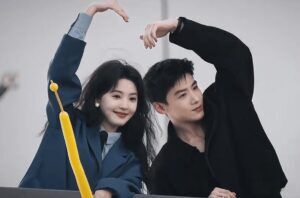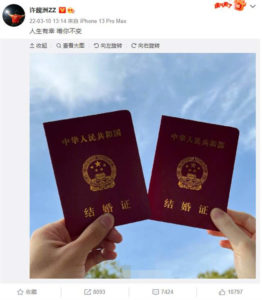Ping Pong Episode 25 Recap
> Ping Pong Recap
Mr. Wei and Mr. Fu discussed the return of Fang Yue and other players from a recent tournament, who would be back that night for the elimination game the following day. Mr. Fu then inquired about Kang Ning's health. The team doctor had reported that it would be difficult for Kang Ning to continue playing, and he had already applied for retirement.
Mr. Fu lamented the immense sacrifices athletes make over decades, training their mental strength, skills, and physical abilities, only to face injuries that force them to give up, even when on the cusp of becoming world champions. He reflected on how injuries are common among national team athletes, and that the cruelty of competitive sports means the body's irreversible toll will eventually lead to replacement by younger players, leaving the question of who the next Kang Ning would be.
Xu Tan arrived at the First team dorm, where Liu Shi enthusiastically helped him with his luggage. Yu Kenan, meanwhile, was on the phone with Mr. Teng, questioning why he hadn't made it into the First team with them. During a team meeting, Mr. Fu announced the arrival of new players in the First team and the upcoming November elimination game, leading to a redistribution of coaches and players.
Mr. Zheng was assigned to coach Yu Kenan and Xu Tan, along with Dong Yu, Wang Ping, and Wang Kai. He stressed the importance of coaches focusing on the new players and getting to know them quickly. After training, Xu Tan tried calling Lei Lei but couldn't get through. Meanwhile, Liu Shi overheard Yu Kenan affectionately talking to Zhang Caiwei on the balcony, calling her his "little kitty" and expressing how much he missed her.
Xu Tan later realized he kept running out of phone credit due to international calls, a problem Yu Kenan fixed for him, joking that he's "so foolish." The next day, Mr. Zheng announced that Yu Kenan and Xu Tan were in the elimination group, which also meant they would serve as sparring partners. Yu Kenan protested, citing his past achievements in the Second team.
Mr. Zheng sternly clarified that in the First team, all past Second team achievements were reset to zero. He asserted that he only cared about winners and that players could only prove themselves by earning medals at international tournaments. He declared his sole goal was to produce champions and expected unquestioning obedience to his commands.
He then announced that any player ranking below tenth in the upcoming elimination game would be required to run thirty laps on the track downstairs daily until their ranking improved. When the first elimination game results were posted, Yu Kenan was seventh and Xu Tan was eighth, which surprised Mr. Zheng. He dismissed those ranked tenth and below, sending Wang Kai to the Second team, and warned the others that their safety was not guaranteed for the next round.
Yu Kenan and Xu Tan endured intense training daily, often sustaining minor injuries. During one training session, Mr. Zheng instructed them to switch sides after only thirty minutes of practice, despite them having already spent the entire morning as sparring partners. When Yu Kenan questioned the order, Mr. Zheng ignored his protests and replaced him with Wang Ping, making Yu Kenan stand outside the court to observe.
Later, Mr. Zheng challenged Xu Tan, whose ranking had dropped from eighth to tenth in the latest elimination game, asking him why he deserved to stay. Xu Tan claimed to be an all-rounder with a good forehand and decent backhand. Mr. Zheng scoffed, remarking that Xu Tan's forehand only seemed good because his backhand was "useless." He then had Fu Jingchun test Xu Tan's forehand and backhand, proving Xu Tan's backhand was indeed very weak.
In a meeting, Mr. Fu made two important announcements: The Olympic qualification event was canceled, and participants would now be selected directly based on ITTF rankings. Fang Yue, Nie Ruifeng, and Chao Yang were the chosen players. The second announcement was a change in the Olympic team event rules, introducing an "Olympic P-Card" for one substitute player.
This P-Card offered a First team member a chance to go to Beijing for the Olympics as a reserve, although the probability of actually playing was estimated at only one percent. Despite the low odds, Mr. Fu emphasized that the P-Card holder must put in 100% effort, even more than the main players, as they wouldn't know when they might be called upon. He urged coaches to convey the importance of this to their players.
Yu Kenan, upon learning about the P-Card, scoffed at the idea, calling it merely a "substitute" and questioning its value if no replacement was needed, stating it was "worse than an entry ticket." He noted that the only scenario for the P-Card holder to play was if one of the three main players got injured, which was unprecedented in their team's history. Mr. Fu explained that the P-Card selection would not only consider rankings but also players' training performance.
From that day on, First team members would rotate as sparring partners for the three main players in the "glass room," while those not selected would continue regular training. An informational segment explained that the Olympic P-Card, as per IOC and ITTF regulations, allows a player to replace an injured athlete in the team event. It offers an additional opportunity to represent the country, making the competition for it intense.
P-Card holders can access special training facilities and the Olympic Village, but official participation requires a replacement application, after which the injured athlete's credentials are revoked, and the substitute's new credentials become effective. Liu Shi, feeling disheartened during training, confessed to Qin Zhen that he believed he wouldn't get the P-Card. He worried about the decreasing opportunities for choppers in major tournaments.
Qin Zhen acknowledged Liu Shi's deeper thinking but emphasized that the P-Card was more than just a stable substitute; it was the national team's "secret weapon," a hidden ace. He expressed his personal dream of seeing a chopper stand on the victory rostrum again and entrusted that hope to Liu Shi. When it was Xu Tan's turn to spar with Fang Yue in the glass room, he apologized for playing too much of "his own game."
Fang Yue, however, found Xu Tan to be the most "honest" sparring partner that day, appreciating his focus solely on playing. Yet, Fang Yue also noticed Xu Tan's hesitation after his good shots, a decisiveness he lacked perhaps due to Mr. Zheng's earlier criticisms. Fang Yue advised him not to overthink during play, as "even a moment of hesitation can cost everything." Xu Tan recalled Yu Kenan telling him the same thing.
A new technical team had conducted physical assessments on all players, with the results to be used as a reference for new Olympic training plans. The data could reveal a player's current physical condition, potential, and maximum load capacity. It was noted that Fu Jingchun's data was particularly unique. During a discussion about strategy against Park Ji-min, the previous Olympic men's singles champion, Mr. Zheng found most players' suggestions off-point.
Xu Tan, however, accurately identified Park Ji-min's strong work rate and aggressive, full-court forehand attack, stressing the need to constantly disrupt his rhythm to win. Impressed, Mr. Zheng acknowledged Xu Tan's insight. While still focusing on Ye Zhen Xin and Fu Jingchun, he finally agreed to give Yu Kenan and Xu Tan a "chance."
The next day, excited by this opportunity, Yu Kenan and Xu Tan arrived two hours early at the training hall, only to find Fu Jingchun already there. Their smiles faded as they realized Mr. Zheng's "chance" was for them to serve as sparring partners for Fu Jingchun, with Xu Tan starting on defense. Although visibly reluctant, they accepted Mr. Zheng's directive.






















